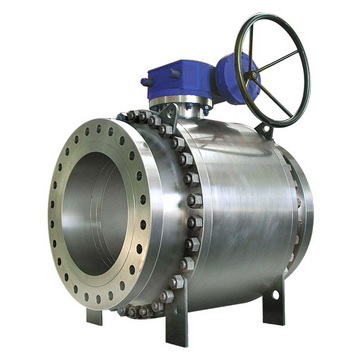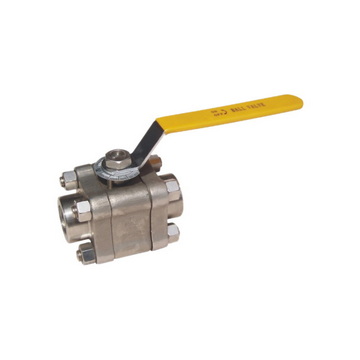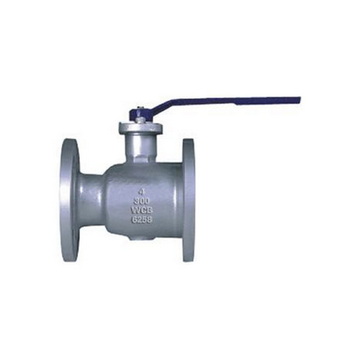Metal Seated vs Resilient Seated Ball Valves: Which One Suits Your System?
Content Menu
● What is a Metal Seated Ball Valve?
● What is a Resilient Seated Ball Valve?
● Fundamental Differences Between Metal and Resilient Seated Ball Valves
● Technical Advantages and Specifications of Metal Seated Ball Valves
● Application Examples of Metal Seated Ball Valves
● When to Use Resilient Seated Ball Valves?
● Environmental and Economic Benefits of Metal Seated Valves
● Summary
● Frequently Asked Questions (FAQ)
>> 1. What applications most benefit from metal seated ball valves?
>> 2. Can metal seated ball valves provide bubble-tight shutoff?
>> 3. How do maintenance needs differ between metal and resilient seated valves?
>> 4. What are the key standards that your metal seated ball valves comply with?
>> 5. Are metal seated ball valves suitable for corrosive fluids?
In fluid control systems, selecting the proper ball valve type is crucial for maintaining operational efficiency and safety. Particularly in demanding industries like oil and gas, seawater desalination, and offshore drilling, choosing between metal seated ball valves and resilient seated ball valves can greatly impact system performance. Both valve types have distinctive features, sealing mechanisms, and applications based on their construction, materials, and operational tolerance.
This article explores the characteristics, benefits, and appropriate uses of metal seated and resilient seated ball valves. It also highlights key technical specifications, industry applications, and maintenance considerations. Whether for OEM manufacturers, brand owners, or system engineers, this comprehensive guidance aids in making informed valve selection decisions.

What is a Metal Seated Ball Valve?
A metal seated ball valve employs hardened metal surfaces as its sealing components. The valve's seat and ball are machined and lapped precisely to achieve a metal-to-metal seal using materials such as stainless steel, cobalt alloys, or tungsten carbide. This construction ensures exceptional resistance to erosion, abrasion, high temperatures, and high pressures.
Metal seated ball valves are engineered for tough applications involving abrasive or corrosive media and are designed to withstand challenging industrial environments without significant seat wear or leakage.
Multiple configurations of metal seated ball valves exist, including:
- Type A: Standard metal seat with polymeric seals for abrasive but moderate temperature applications.
- Type B: Metal seats combined with flexible graphite seals to enhance temperature resistance.
- Type C: Incorporates spring-loaded seats for higher temperature fluids and gases, maintaining tight sealing under extreme conditions.
These valves are typically available in flange or threaded end connections, sized from ¼ inch to 48 inches, and pressure ratings ranging from ANSI Class 150 to 600 or higher. Coatings and metal alloys can be customized to suit specific corrosion or wear challenges.
What is a Resilient Seated Ball Valve?
Conversely, resilient seated ball valves utilize soft, elastic materials such as PTFE, NBR, or other polymers for the seat. The soft seat compresses against the ball, forming a tight seal that can achieve bubble-tight shutoff. These valves generally use floating or trunnion-mounted ball designs and are suitable for systems where temperature and pressure are lower and where the fluid is clean and non-abrasive.
Resilient seated valves are typically simpler in design, less expensive upfront, and easier to maintain due to the replaceable soft seat. However, they are not well-suited to applications involving sand, slurry, or high temperatures exceeding 180°C.
Fundamental Differences Between Metal and Resilient Seated Ball Valves
- Material and Seal Type: Metal seated valves feature hard metal-to-metal seats, while resilient valves rely on deformable polymeric seats.
- Temperature and Pressure Resistance: Metal seated valves handle up to 450°C (and above with special configurations) and higher pressure classes, whereas resilient valves have limited temperature ranges and moderate pressure limits.
- Resistance to Abrasion and Corrosion: Metal seats excel in erosive, corrosive, or abrasive media; resilient seats degrade quickly under such conditions.
- Seal Tightness: Resilient seats provide bubble-tight shutoff (ANSI Class VI), whereas metal seats usually offer tight sealing at ANSI Class IV or V.
- Maintenance and Durability: Metal seated valves have longer service life in harsh environments but require more complex maintenance. Resilient seated valves need more frequent seat replacements but are easier and faster to service.
- Operating Torque: Metal seated valves generally require higher operating torque due to the metal-to-metal contact but innovations such as wave springs are used to reduce torque.
Technical Advantages and Specifications of Metal Seated Ball Valves
Metal seated ball valves boast numerous advanced technical features:
- Pressure Assisted Metal Seat design helps maintain tight sealing by using pressure to increase seat to ball contact.
- Full Port Body Design ensures minimal pressure drop and reduced head loss across the valve.
- Trunnion Mounted Ball offers sturdy support for the ball, enabling smooth operation and longevity.
- Fire-safe Design adheres to industry safety standards, ensuring valve integrity in fire scenarios.
- Low Fugitive Emission Packing reduces emissions around the stem, supporting environmental compliance.
- Bi-directional Sealing enables the valve to provide tight shutoff regardless of flow direction.
- ISO 5211 Mounting Pad facilitates easy automation by actuators or gear operators.
- Materials of Construction include carbon steel, stainless steel (316SS), and specialty alloys with optional coatings for enhanced abrasion and corrosion resistance.
Common pressure classes include ANSI 150, 300, 600, and in some industrial models up to 2500, with temperature ranges from -29°C up to 500°C or beyond depending on materials and design. Typical sizes range from ¼ inch to 48 inches, covering a broad spectrum of industrial piping needs.

Application Examples of Metal Seated Ball Valves
- Oil and Gas Industry: Metal seated valves resist sand-laden and corrosive hydrocarbons during upstream and downstream processing.
- Chemical Processing: Ability to withstand aggressive chemicals and high-pressure steam.
- Offshore Platforms: Durable under saltwater exposure, abrasive drilling muds, and rough operating conditions.
- Seawater Desalination: Resists scaling, abrasion, and aggressive brine.
- Power Generation and Steam Systems: Withstands high temperature saturated steam up to 720 PSIG.
When to Use Resilient Seated Ball Valves?
Resilient seated ball valves are more suitable for:
- Clean water and wastewater systems without abrasive solids.
- Low to medium temperature applications (usually below 180°C).
- Compressed air, gas distribution networks, and chemical services where higher sealing tightness is required.
- Systems where easy maintenance, lower initial cost, and reliable bubble-tight shutoff are priorities.
- Pharmaceutical, food, and beverage industries where soft seats avoid contamination risk.
Maintenance Considerations
Metal seated ball valves demand more specialized maintenance due to precise metal seat-to-ball contact surfaces that require proper alignment and potential lapping upon repair. Seat and ball wear due to erosion or abrasion can necessitate seat replacement or refurbishment.
Resilient seated valves generally require only periodic seat replacement, which is simple and quick, as soft seats can be easily removed and installed without major valve disassembly.
Environmental and Economic Benefits of Metal Seated Valves
While metal seated valves often come with higher initial cost and maintenance complexity, their extended service life in adverse conditions reduces replacement frequency and downtime costs. Their leak-tight metal-to-metal design decreases fugitive emissions, helping companies meet stringent environmental regulations and lowering operational hazards.
Summary
Choosing the appropriate ball valve type depends on the specific demands of the application environment, including fluid characteristics, temperature and pressure ranges, maintenance capability, and cost considerations.
- Use metal seated ball valves in severe, abrasive, corrosive, or high-temperature applications where durability and long service life outweigh installation and maintenance complexity.
- Opt for resilient seated ball valves in less demanding, clean fluid systems requiring tight shutoff and easier maintenance.
Our factory specializes in producing premium quality metal seated ball valves, floating and trunnion ball valves, and top-entry ball valves, offering global OEM solutions meeting international standards such as API, ASME, ISO, and GB. We welcome inquiries from global brand owners, wholesalers, and manufacturers seeking reliable, customized valve products designed for rigorous industrial conditions.
Call to Action
Contact us now to discuss your fluid control needs and receive expert advice and competitive quotations on metal seated and resilient seated ball valves, engineered for your specific system requirements.

Frequently Asked Questions (FAQ)
1. What applications most benefit from metal seated ball valves?
Metal seated ball valves are ideal for oil and gas, petrochemical, offshore drilling, seawater desalination, and other harsh environments where abrasive particles, high pressure, and temperature are common.
2. Can metal seated ball valves provide bubble-tight shutoff?
Metal seated valves typically meet ANSI Class IV or V leakage standards, which are very tight but usually not as tight as resilient seated valves that meet ANSI Class VI for bubble-tight sealing.
3. How do maintenance needs differ between metal and resilient seated valves?
Metal seated valves require more precise maintenance and potential seat lapping, while resilient seated valves need simpler seat replacements and less technical servicing.
4. What are the key standards that your metal seated ball valves comply with?
Our valves adhere to global standards such as API 6D, ASME B16.34, ISO 9001, CE certification, and other relevant certifications ensuring quality and performance.
5. Are metal seated ball valves suitable for corrosive fluids?
Yes, when constructed with appropriate corrosion-resistant alloys and coatings, metal seated ball valves handle corrosive fluids effectively in industrial conditions.
Hot tags: Metal Seated Vs Resilient Seated Ball Valves, Difference Between Metal And Resilient Seated Ball Valves, Best Ball Valve For Industrial Systems, Metal Seated Ball Valves For High Temperature, Resilient Seated Ball Valves For Low Pressure, Choosing The Right Ball Valve For Your System, Advantages Of Metal Seated Ball Valves, Benefits Of Resilient Seated Ball Valves, Industrial Applications Of Metal Seated Ball Valves, Metal Vs Resilient Seated Ball Valve Comparison